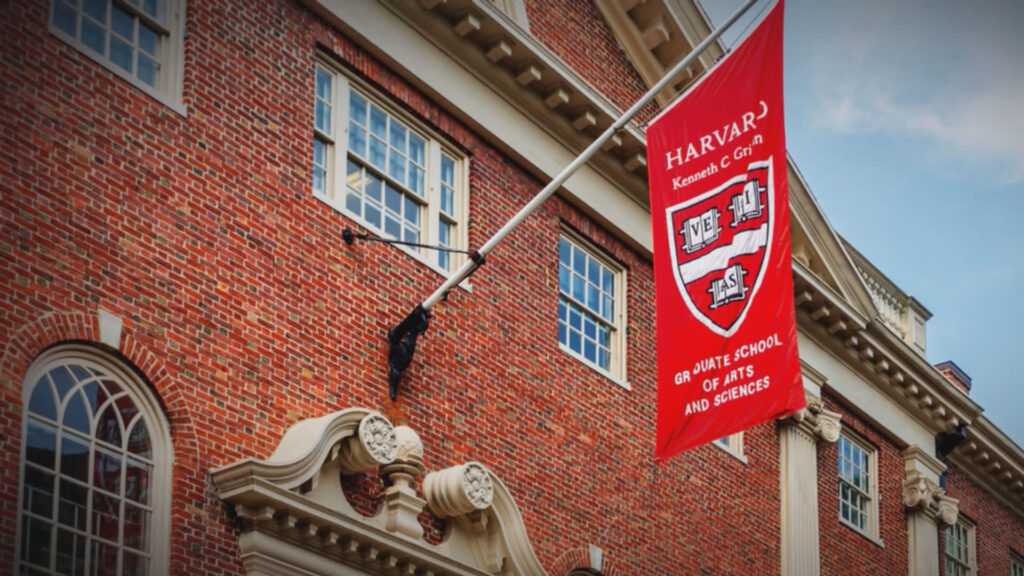A federal judge has temporarily blocked the Trump administration’s plan to revoke Harvard University’s ability to enroll international students. The decision came after Harvard filed a lawsuit, intensifying its ongoing dispute with the White House.
Harvard argued that the administration’s attempt to bar foreign students was a “blatant violation” of both legal and free speech protections. The administration, however, claimed Harvard wasn’t doing enough to combat antisemitism and alleged discriminatory practices in its admissions – claims the university firmly denies.
US District Judge Allison Burroughs issued the temporary restraining order on Friday, effectively halting the Department of Homeland Security’s Thursday move to remove Harvard from the Student and Exchange Visitor Program (SEVP), which manages visas for international students.
The next hearing is set for May 29 in Boston.
“With the stroke of a pen, the government has tried to erase a quarter of Harvard’s student body,” Harvard stated in its legal filing. Harvard President Alan Garber described the decision as an “unlawful and unwarranted action” in a letter to the community.
He added that the move was part of an ongoing attempt by the government to retaliate against Harvard for refusing to cede its academic independence.
In response, White House deputy press secretary Abigail Jackson claimed that Harvard’s concerns were misplaced and that it should focus on rooting out “anti-American, anti-Semitic, pro-terrorist agitators” on its campus. After the court’s ruling, Jackson accused the judge of a “liberal agenda,” saying, “These unelected judges have no right to stop the Trump Administration from exercising its control over immigration and national security policy.”
Meanwhile, Harvard’s campus was quiet on Friday as commencement preparations began. For many international students, uncertainty replaced celebration. Cormac Savage, from Northern Ireland, said the situation made him hesitant to stay in the US after graduation: “You don’t know if you’ll be allowed back to finish your degree.”
For students like Rohan Battula from the UK, who plans to work in New York, the court’s ruling brought relief but also lingering uncertainty. “It’s surreal to think that for even a brief period, you could be unlawfully staying in a country just because you’re studying here,” he said.
Around 6,800 international students make up over 27% of Harvard’s current enrollment. Significant numbers hail from China, Canada, India, South Korea, and the UK, including 23-year-old Princess Elisabeth, future queen of Belgium.
The financial stakes are high. International students often pay full tuition – nearly $60,000 for undergraduates before fees, housing, and other costs, which can exceed $100,000 per year. Experts note that these students’ fees help subsidize financial aid for American students.
Isaac Bangura, a public administration student from Sierra Leone, said his children were worried about deportation: “My kids were asking, ‘Daddy, are they going to send us home again?’” But he remains hopeful: “I know the American people will find a way to resolve this.”
The administration’s actions extend beyond Harvard, with President Trump warning that other universities might face similar measures. In April, the White House froze $2.2 billion in federal funding to Harvard and threatened to remove its tax-exempt status, prompting previous legal challenges.
Legal experts, including Carl Tobias from the University of Richmond, suggest federal courts in Massachusetts and New England have generally ruled against the administration, but the final outcome – possibly heading to the Supreme Court – remains uncertain.
Harvard has made some concessions, including removing leaders of its Middle Eastern Studies Center, but it also enlisted prominent Republican attorneys to bolster its defense.
Many foreign students at Harvard remain in limbo. Being listed in the SEVP system is crucial for maintaining visa status. If Harvard is ultimately blocked, thousands of students could be forced to leave or transfer.
Some British students expressed fear and frustration, feeling like “pawns in a game” as they face the possibility of an abrupt end to their US education.

